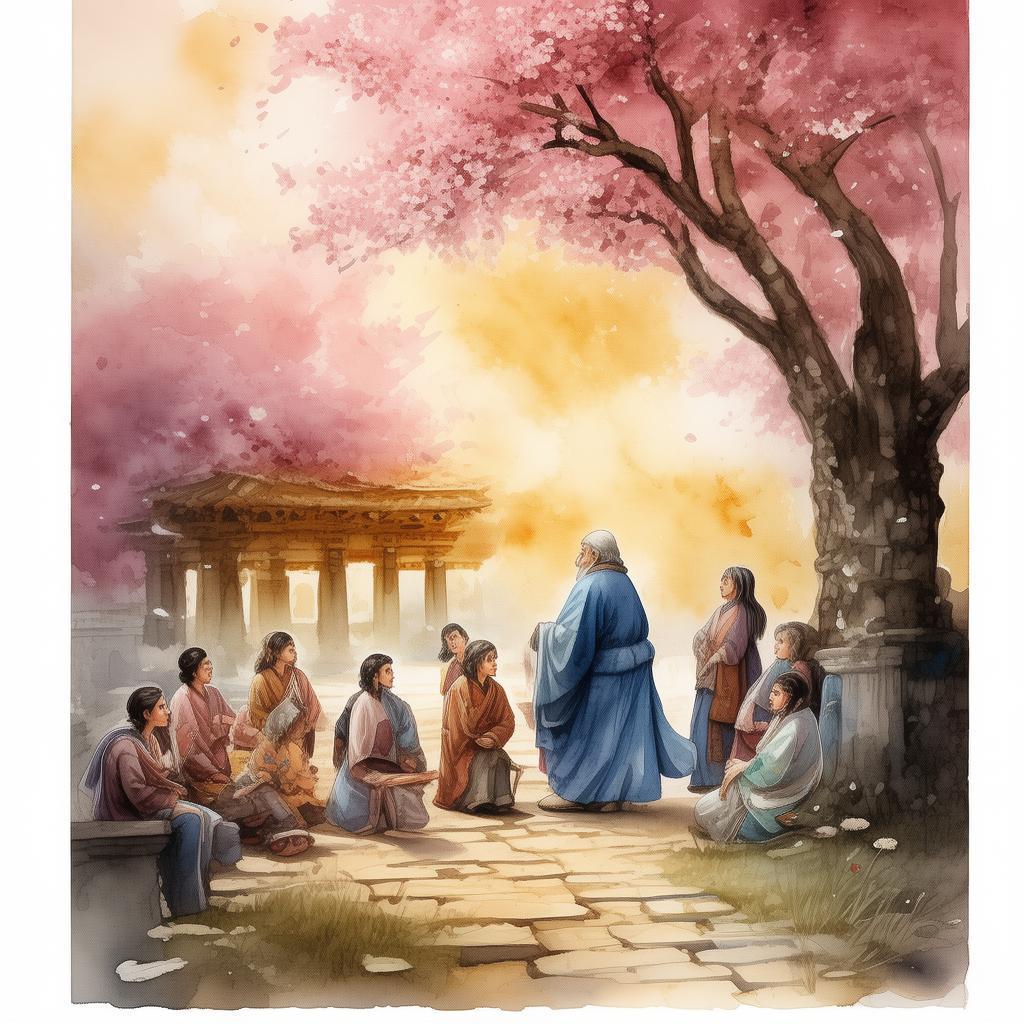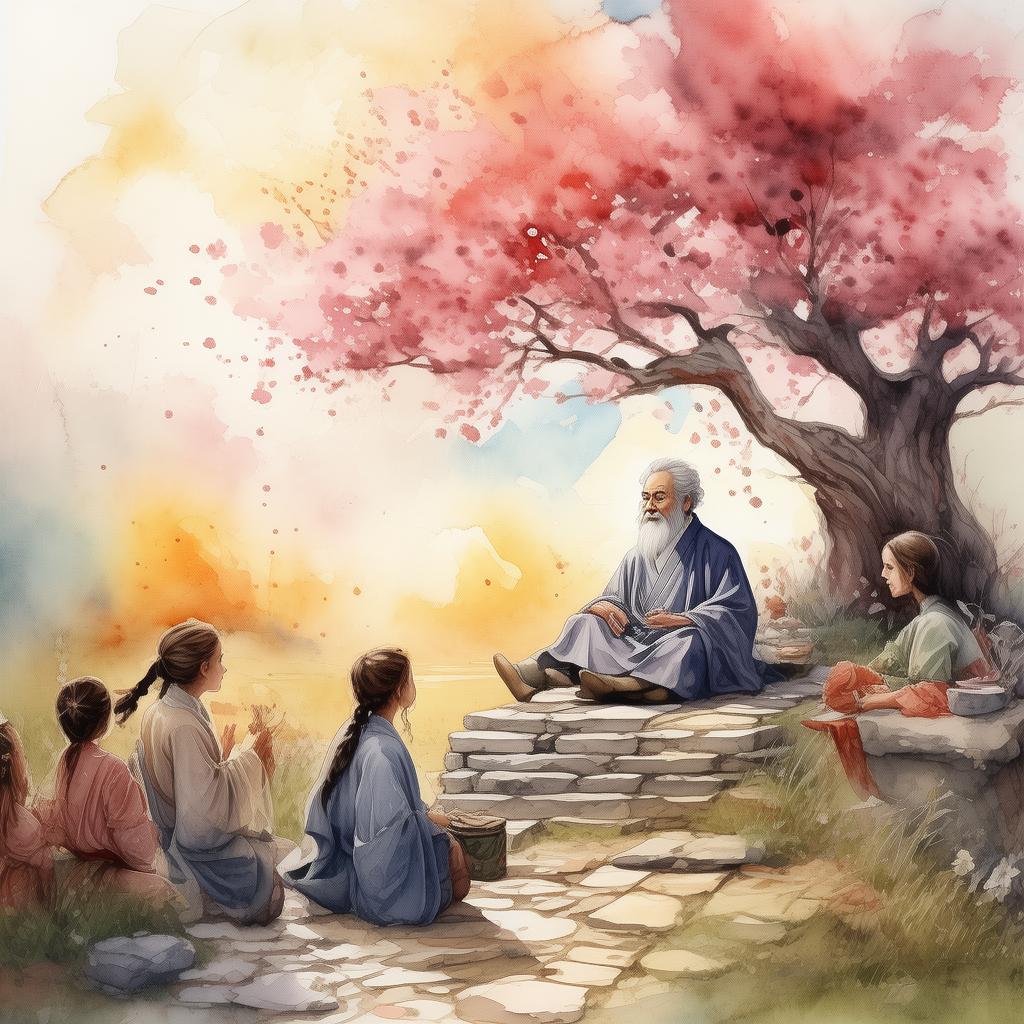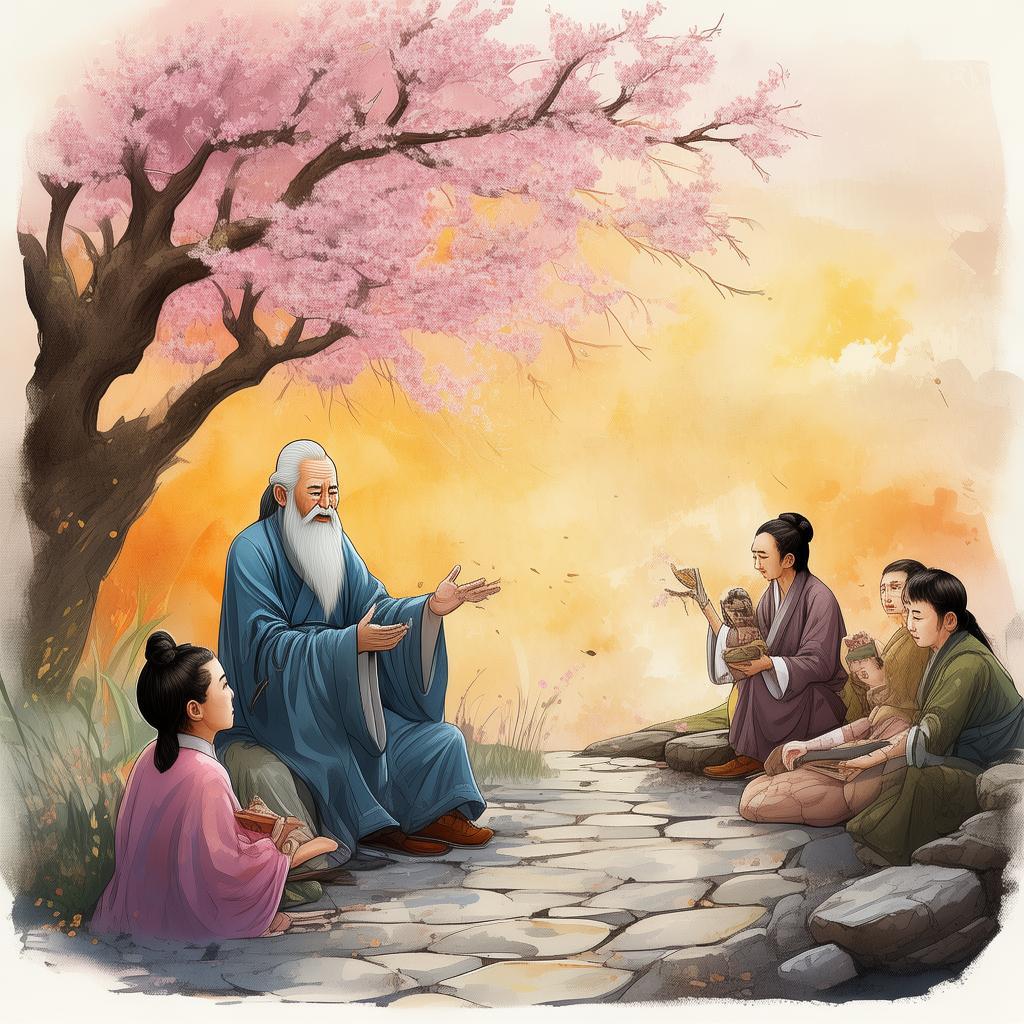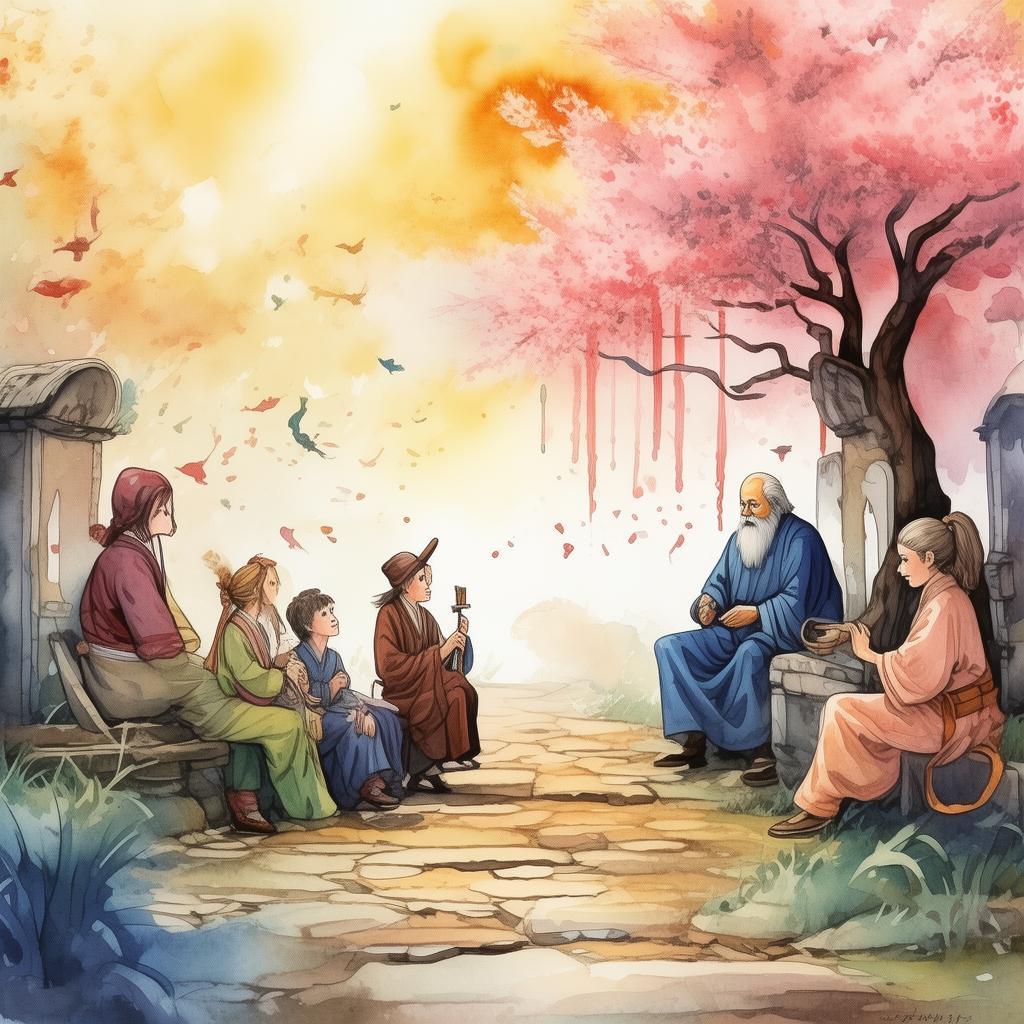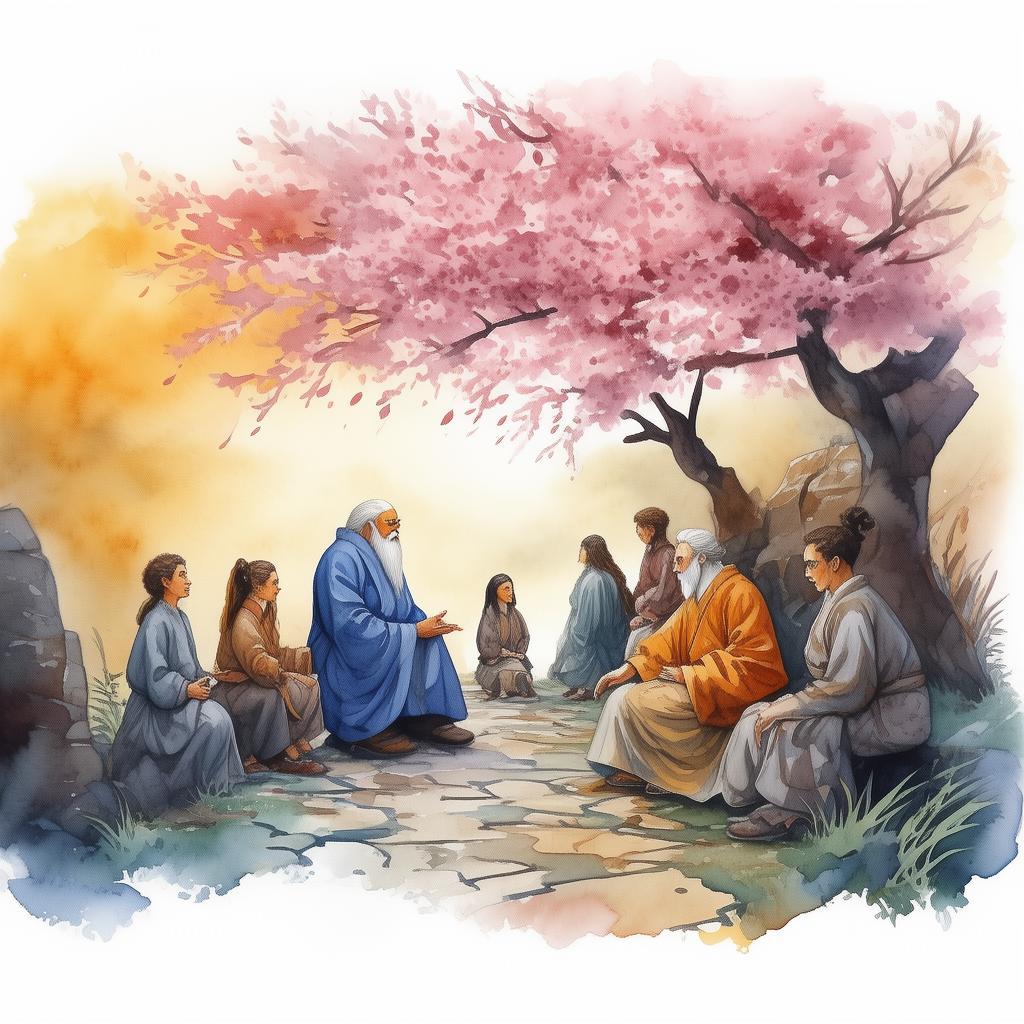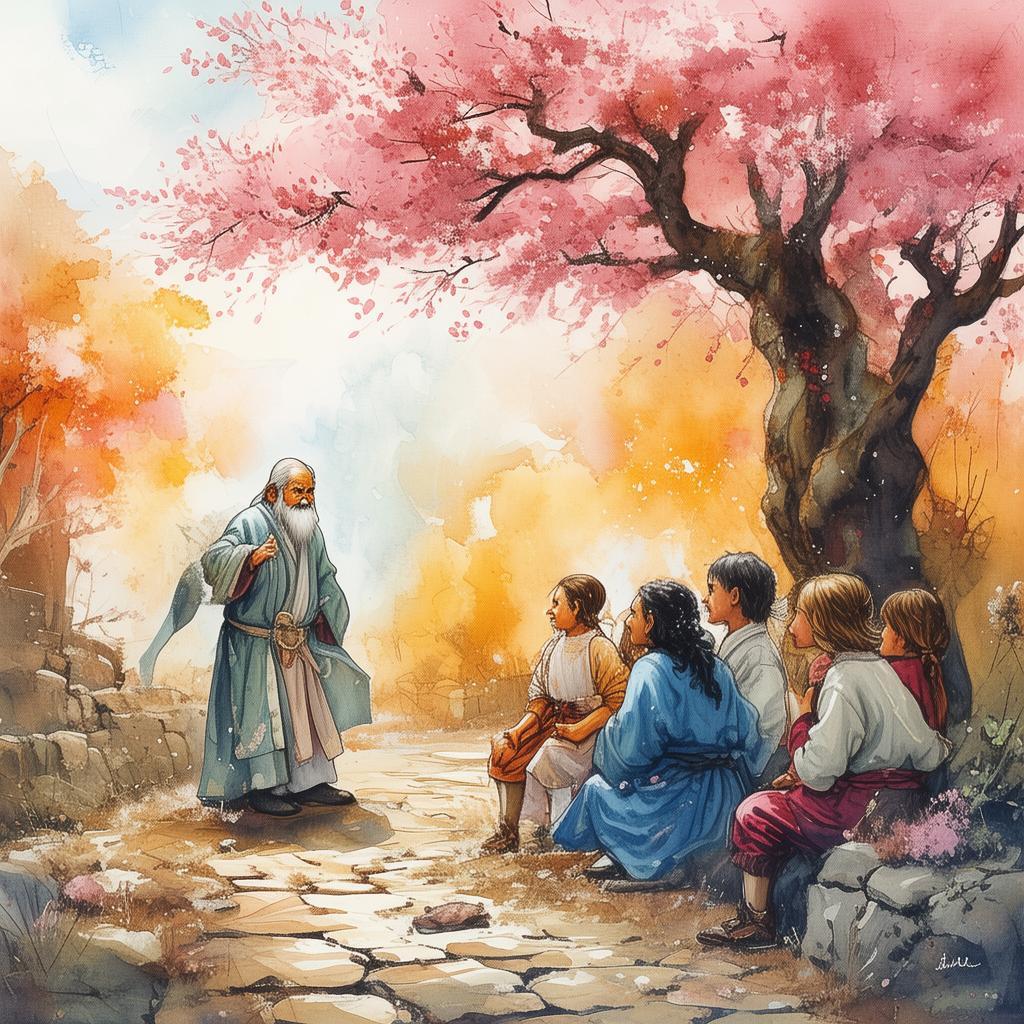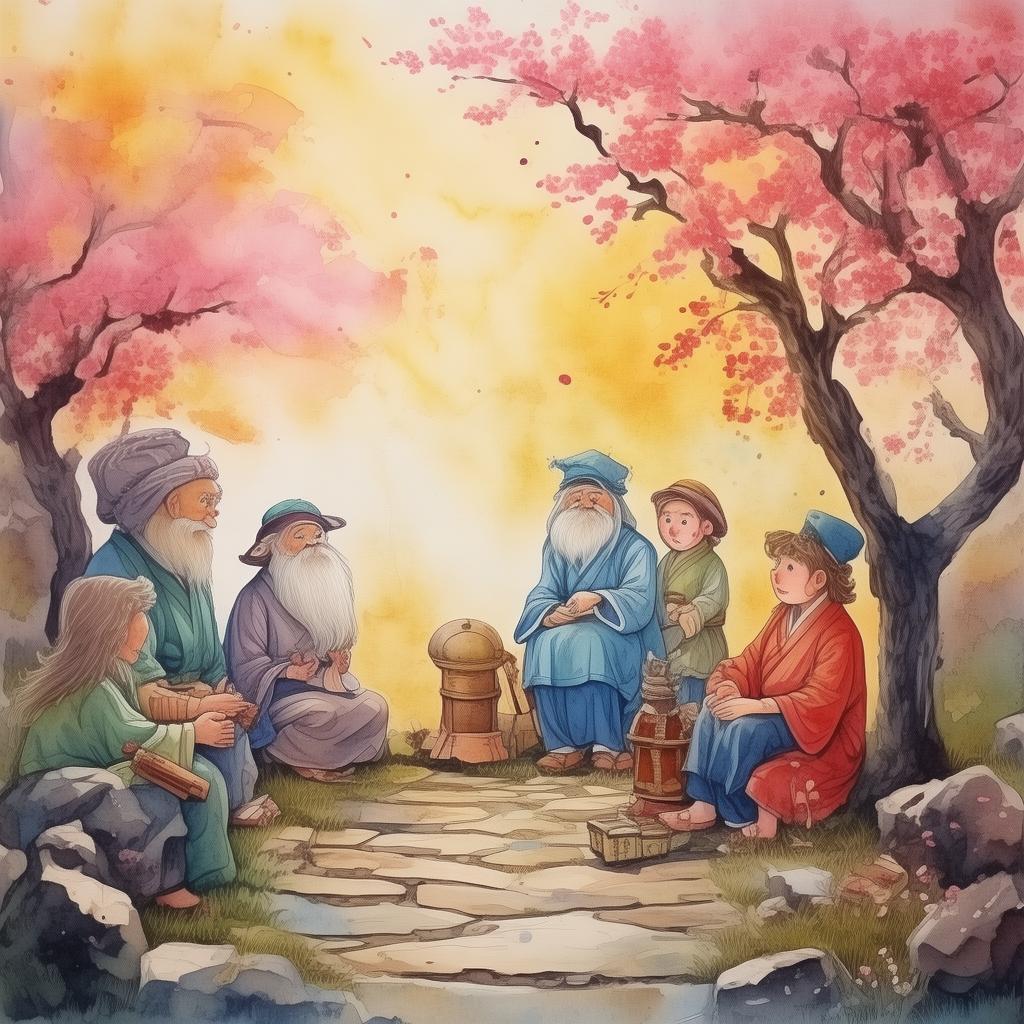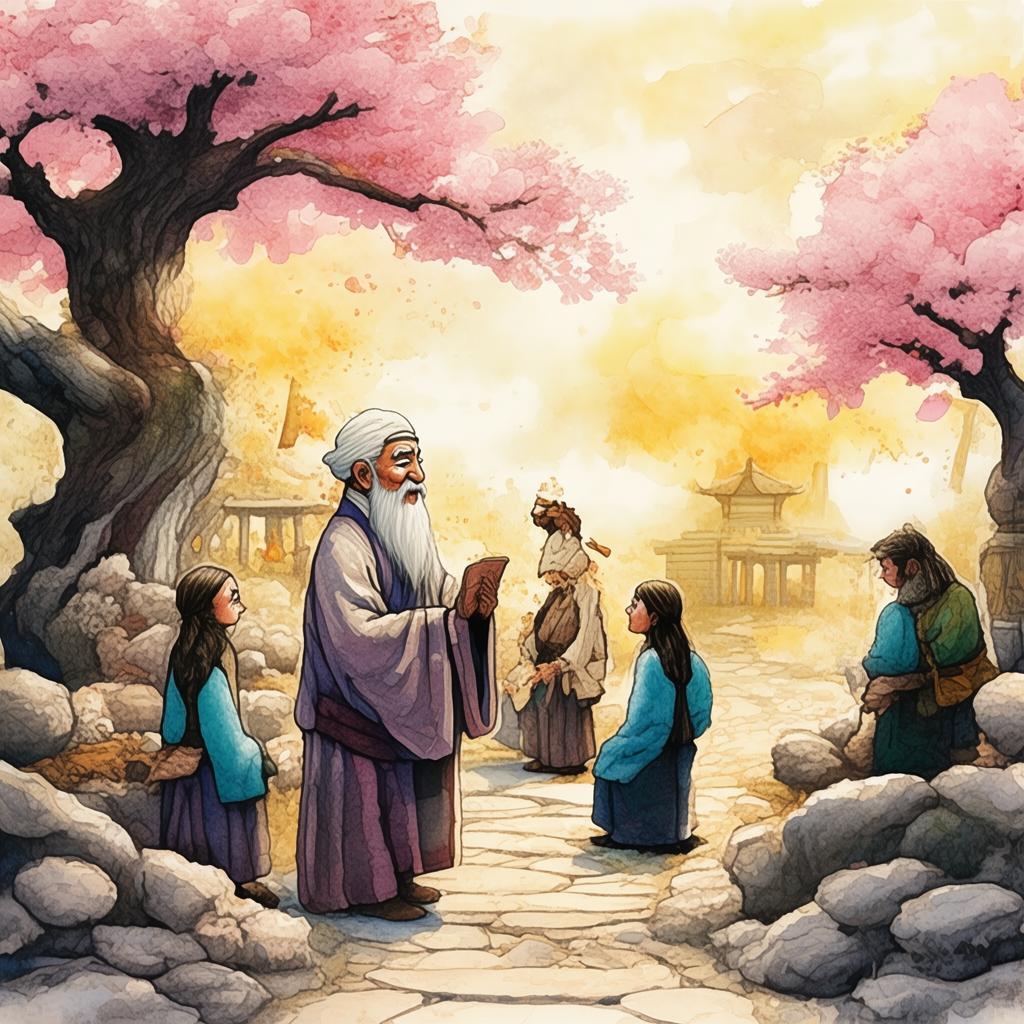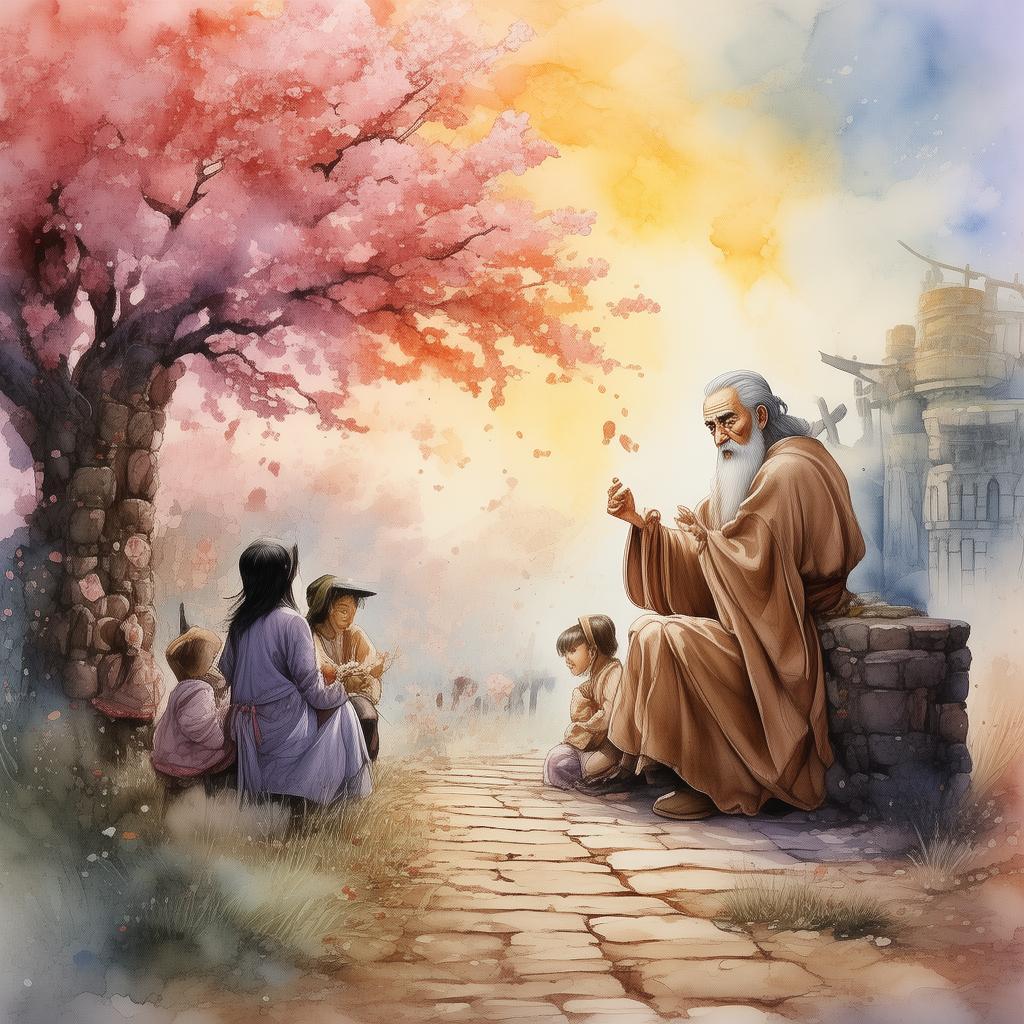The Time-Traveling Scholar
In the heart of a bustling city, amidst the towering skyscrapers and the constant hum of the modern world, there existed a small, secluded library that was as old as time itself. Within its walls, surrounded by dusty tomes and ancient scrolls, was a scholar named Li Yuan. His life was dedicated to the pursuit of knowledge, and he spent his days decoding the mysteries of the past, searching for wisdom that could enlighten the future.
One rainy afternoon, while rummaging through the library's attic, Li Yuan stumbled upon a peculiar object. It was a small, ornate box, crafted from dark wood and adorned with intricate carvings. Curiosity piqued, he opened it to reveal a small, shimmering time capsule.
The capsule was inscribed with ancient characters that Li Yuan couldn't immediately decipher, but there was an undeniable allure to the object. He held it in his hands, feeling a strange connection to the past. Suddenly, a blinding light enveloped him, and when the light faded, Li Yuan found himself standing in a bustling marketplace of ancient China.
The scene was mesmerizing. The air was filled with the scent of exotic spices, and the sounds of merchants calling out, the clatter of coins, and the distant bell of a temple resonated through the streets. Li Yuan's heart raced with excitement and apprehension. He had traveled back in time, and the ancient Chinese people were oblivious to the marvel of their technology.
Li Yuan's first thought was to take advantage of his newfound knowledge. He had read extensively about the great philosopher Confucius, and he knew that the teachings of ancient China held the key to understanding human nature. He approached a local scholar, hoping to share his wisdom.
"Good sir," Li Yuan began, "I have come from a distant land and bring with me the teachings of Confucius. I believe they can elevate the minds of your people and bring about a greater understanding of the world."
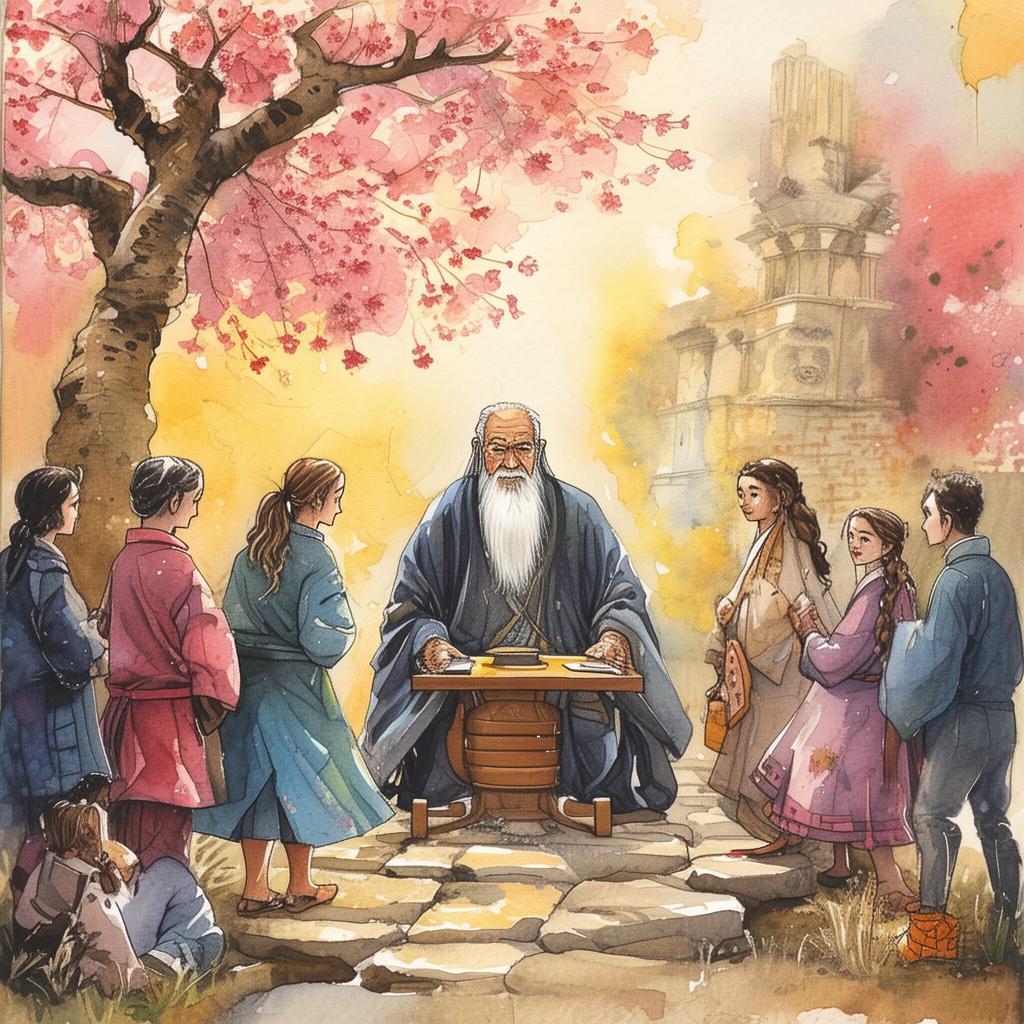
The scholar looked at Li Yuan with skepticism, "What proof do you have of your claims? The wisdom of our ancestors is sacred, and we do not take kindly to strangers who claim to possess knowledge beyond our own."
Li Yuan, undeterred, replied, "I will demonstrate with a simple riddle. I say, 'If you are standing on the ground, how can you touch the sky?' What is your answer?"
The scholar thought for a moment, then responded, "One must reach for the sky with one's hands, for it is only through reaching that one can touch what is unreachable."
Li Yuan smiled, "Indeed, you have grasped the essence of Confucius's teachings. The pursuit of knowledge is a journey, and it is through continuous effort and reaching that we can touch the sky."
The scholar was intrigued, and Li Yuan began to share more of his knowledge. He taught the locals about the principles of Confucianism, about the importance of family, community, and moral conduct. His teachings were well-received, and he soon became a revered figure in the community.
However, as Li Yuan immersed himself in the ancient world, he began to realize that the pursuit of knowledge came with moral dilemmas. The people of ancient China were simple and content, but they lived in fear of their rulers and the capricious whims of the gods. Li Yuan's knowledge could have brought enlightenment, but it could also have been used to justify the oppression of the many by the few.
One day, a group of bandits attacked the village. The villagers were helpless, their weapons no match for the bandits' arrows and swords. Li Yuan's heart raced with the urge to use his knowledge to defeat the bandits and save the villagers. But as he watched the fear and suffering of his people, he knew that the use of his knowledge for self-serving purposes would be a betrayal of his scholarly pursuit.
He approached the bandit leader and offered his services. "I can help you become a wise ruler, one who is respected and loved by your people. In return, I ask only for the safety of the villagers."
The bandit leader, intrigued by Li Yuan's offer, agreed to his terms. In the days that followed, Li Yuan taught the bandit leader about governance, justice, and compassion. He showed him how to lead with wisdom and humility.
As time passed, the once fearsome bandit leader transformed into a just and benevolent ruler. The villagers flourished under his rule, and Li Yuan's teachings spread throughout the land. Yet, the scholar felt a profound sense of unease. He had used his knowledge to bring about a better world, but at what cost?
Li Yuan knew that his time in the ancient world was drawing to a close. He opened the time capsule and stepped inside, ready to return to his own time. As he emerged back in the library, he felt a sense of relief and resolve.
In the years that followed, Li Yuan continued his scholarly pursuits with a newfound clarity. He realized that the true essence of wisdom was not in the accumulation of knowledge, but in the ethical use of that knowledge to improve the lives of others.
The Time-Traveling Scholar is a tale of the pursuit of knowledge and the moral dilemmas that come with it. It highlights the importance of ethical considerations in the application of wisdom and serves as a reminder that knowledge is a powerful tool, but only when used responsibly.
✨ Original Statement ✨
All articles published on this website (including but not limited to text, images, videos, and other content) are original or authorized for reposting and are protected by relevant laws. Without the explicit written permission of this website, no individual or organization may copy, modify, repost, or use the content for commercial purposes.
If you need to quote or cooperate, please contact this site for authorization. We reserve the right to pursue legal responsibility for any unauthorized use.
Hereby declared.
